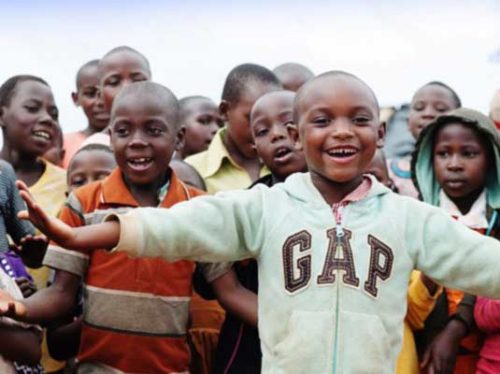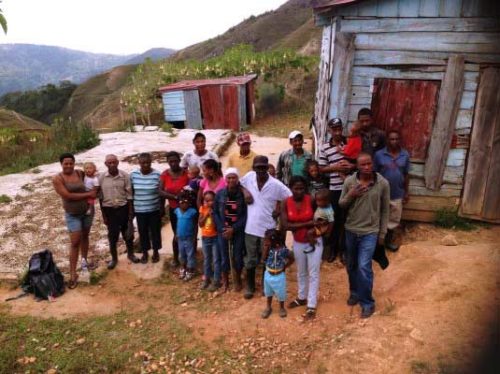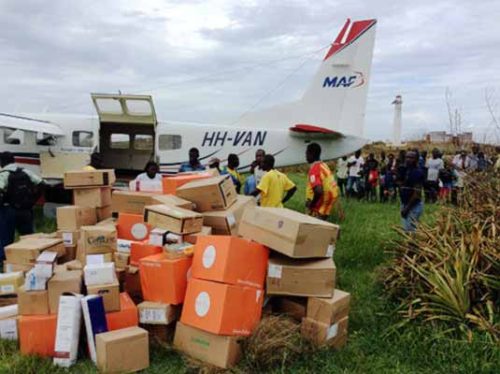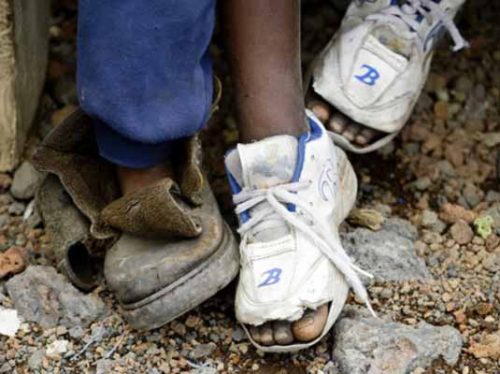Voluntourism, volunteer tourism, is the new trend. It’s been around a while and I’ve gone on a number of these types of trips. Call them missions, call them part of study abroad experiences, or call it the adventure of a lifetime. These trips changed me. They opened my eyes. They made me feel a spectrum of emotions. I made connections. I saw new places. I gained cultural awareness. I became a “better person.” These trips changed me. These voluntourism mission trips changed me. But they did next to nothing for the people I was helping, saving, serving.
I’ve worked a much longer term in an orphanage and saw it from another point of view. Every week or so new volunteers came. Most with great intentions. Almost none who spoke the language of the kids. Still, hugs are the same in every language. Kids need affection. But do they need it from strangers? I started to see and research that many kids growing up in orphanages have poor attachment skills as adults. Of course, with a new stranger to hug each day, how could they grow up to understand the danger of strangers or physical attachment at once? They willingly go into dangerous situations because they know nothing else. They want love but learned that everyone leaves. What are these hugs teaching them?
Now let’s talk about the volunteers who did speak the language, being Spanish, in this case. They did not usually speak the language at a level to successfully handle the conversations they were not prepared for. A kid who lives in an orphanage sometimes, many times, but not always, has a backstory of abuse. The orphanage where I worked was fortunate to have a  psychologist who briefly trained new volunteers. But she couldn’t get into every psychological aspect present with them in such a short time so it was usually a briefing like “we have many many rules you may not understand or agree with but you will follow them or have to leave for the safety of the kids.” This left volunteers unsure of how to react when a five year old asks “On what part of your body does your boyfriend kiss you and how does he move his mouth?” The volunteer expected to supervise TV time and maybe tell a kid “stop hitting” or something.
psychologist who briefly trained new volunteers. But she couldn’t get into every psychological aspect present with them in such a short time so it was usually a briefing like “we have many many rules you may not understand or agree with but you will follow them or have to leave for the safety of the kids.” This left volunteers unsure of how to react when a five year old asks “On what part of your body does your boyfriend kiss you and how does he move his mouth?” The volunteer expected to supervise TV time and maybe tell a kid “stop hitting” or something.
Another psychological issue is that the volunteers often don’t know ahead of time what it will be like there. The volunteers have no time to mentally prepare for being in an institution. I saw a full blown panic attack from one volunteer upon realizing she was locked inside an orphanage. I freaked out a bit when locked in a room to teach one kid. The other kids were locked out as to not interrupt but I had to bang on the door and yell for someone to let us out when we were finished. Institutionalized kids can’t leave the building whenever they want even if they are old enough to walk around outside alone. Doors can’t be left open for air because abusive parents might come in to steal their kid back. Windows have metal bars to prevent robbery, escape, intrusion. Volunteers are free to leave when they want but if they chose to leave earlier than the usual shift ends they need to find a way to communicate that in a language not their own. The volunteer realizes she’s locked in an institution and is panicking, stuck, needing air, needing to be anywhere else. Imagine. Someone finally gets it but she needs to wait for person A to get the keys and unlock the door. First, person B must come supervise the kids. Person A asks person C where she left the keys. In other words, it takes a minute. And in that minute a volunteer can go through hell.
I’ve heard of other orphanages much less fortunate. In other parts of the world and even this country there are orphanages where one elderly lady who can barely move lovingly cares for 40 children. What a saint! And what an impossible responsibility. So volunteers are accepted. Because they are accepted doesn’t mean they should be. The kids would be better off growing up with very little attention from one safe person than a world of attention from a revolving door of unfamiliar unqualified unverified people. Are there background checks? Is there supervision of what the volunteer is volunteering to do? Not at all. With 20 of the 40 kids needing seemingly urgent attention all help is accepted. This leads to abuse of all sorts. Where I worked we noticed when a man was creepy and only wanted to help change kids. No volunteers changed kids there. His insistent argument of this got him kicked out. In another orphanage things would have been different.
been different.
My argument is this: You are likely a safe person, a loving person, a person with the best intentions but supporting voluntourism is supporting a system that leads to abuse. At best, your trip will make a kid smile a few times and then leave him wondering why you too left him.
On to the next issue. What are the real needs in the orphanage? In the case I’m most familiar with, the kids needed shoes. They didn’t need but could greatly use a new DVD player because the only they had was permanently stuck in a way that they could only watch in English and not change the language to Spanish. They did not need English lessons. Many trips focus on teaching English. And sure the kid will eventually grow up, get out of the orphanage, and find a job. English may be helpful in this. Focusing on his “here and now,” though, he has no shoes. Where is he going to go, without shoes, to use this new skill of speaking English? How much English is he going to learn in the week you are there? It’s not a waste. Learning a new language or culture does wonders for the brain but it’s a very low need in comparison to shoes, food, etc. In underdeveloped countries basic supplies are limited and expensive. When an apple costs $3 and shampoo $7, how are you to feed and clean everyone in the orphanage? And volunteers come hungry. That’s a separate issue.
Moving on, volunteer trips are sooo expensive. If you have thousands of dollars, imagine how many shoes that can buy. There’s a great organization, The Shoe That Grows, (https://theshoethatgrows.org/) that makes sturdy, adjustable size shoes so a kid only needs two pairs throughout his life. How many lives can you change with the amount of money you saved for a volunteer trip? You’d be saving so many kids from so many problems, physical abnormalities from walking in shoes that don’t fit, diseases from walking in unsanitary places without shoes or with shoes with holes, etc. Compare that to the difference made by teaching colors and numbers in a language they won’t use for at least a decade. In many countries they will never again use it.
 On the topic of monetary donations, I’ll tell of one more organization, the Red Cross. I’ve been on the receiving side of help in a Red Cross camp. In a crisis, they bring what they have. I was in a crisis on day one, hour one. They arrived at once with a small truck carrying the first five of many mattresses. There were hundreds of people. The Red Cross here doesn’t own a big truck or have a warehouse to organize supplies. If someone or some group were to donate funds for this cause or donate a truck, as just one example, they could have one ready, stacked with mattresses. They wouldn’t have to find the mattresses and find a way to deliver them. Kids wouldn’t be sleeping outside on a cold floor. Regarding a way to deliver things, a bit later came supplies. The Red Cross had thankfully received donations of toothbrushes, shampoo, etc. but no one donated bags. What’s the big deal about bags? You’ll soon see. In a crisis camp people eventually realize “We’re guna be here a while let’s find a way to get along” but the first thought is “ME. MY FAMILY.” Fights, violent fights, break out over a toothbrush. The first person in the line got 15 toothbrushes. Hmm. What will he do with them? He didn’t give them out to the people closest and keep one. He fought everyone off and kept them all and traded them later. But this trade becomes unfair and anything unfair leads to violence. Items obviously have differing values. And how does someone with three giant bottles of shampoo trade for one toothbrush, one roll of toilet paper, etc.? What was needed to avoid violence and chaos in that crisis was a bunch of bags to divide supplies fairly. No one thinks to donate bags. That’s so random to us but to the experts it’s basic. They need money for bags. We should trust them and help them their way. This is what happens when good people invent how to help. Help is best received in the way the organization sees fit, whether monetary or preorganized supplies, for example.
On the topic of monetary donations, I’ll tell of one more organization, the Red Cross. I’ve been on the receiving side of help in a Red Cross camp. In a crisis, they bring what they have. I was in a crisis on day one, hour one. They arrived at once with a small truck carrying the first five of many mattresses. There were hundreds of people. The Red Cross here doesn’t own a big truck or have a warehouse to organize supplies. If someone or some group were to donate funds for this cause or donate a truck, as just one example, they could have one ready, stacked with mattresses. They wouldn’t have to find the mattresses and find a way to deliver them. Kids wouldn’t be sleeping outside on a cold floor. Regarding a way to deliver things, a bit later came supplies. The Red Cross had thankfully received donations of toothbrushes, shampoo, etc. but no one donated bags. What’s the big deal about bags? You’ll soon see. In a crisis camp people eventually realize “We’re guna be here a while let’s find a way to get along” but the first thought is “ME. MY FAMILY.” Fights, violent fights, break out over a toothbrush. The first person in the line got 15 toothbrushes. Hmm. What will he do with them? He didn’t give them out to the people closest and keep one. He fought everyone off and kept them all and traded them later. But this trade becomes unfair and anything unfair leads to violence. Items obviously have differing values. And how does someone with three giant bottles of shampoo trade for one toothbrush, one roll of toilet paper, etc.? What was needed to avoid violence and chaos in that crisis was a bunch of bags to divide supplies fairly. No one thinks to donate bags. That’s so random to us but to the experts it’s basic. They need money for bags. We should trust them and help them their way. This is what happens when good people invent how to help. Help is best received in the way the organization sees fit, whether monetary or preorganized supplies, for example. For ongoing crisis’ the Red Cross specifies what can be donated. There are several options of bags packed with exactly what’s needed. You have to donate in a specific way so that they can hand out bags and each family gets the same items: a broom, 3 toothbrushes, a bottle of shampoo, rice, etc. “I donated money for 2,000 plastic bags” doesn’t get as much buzz on Facebook as does “I lived in an orphanage for a week” but it represents a much greater need. Those who are not in a crisis camp and do have a few bucks to spare can greatly and easily change the emergency response in any country with Red Cross.
For ongoing crisis’ the Red Cross specifies what can be donated. There are several options of bags packed with exactly what’s needed. You have to donate in a specific way so that they can hand out bags and each family gets the same items: a broom, 3 toothbrushes, a bottle of shampoo, rice, etc. “I donated money for 2,000 plastic bags” doesn’t get as much buzz on Facebook as does “I lived in an orphanage for a week” but it represents a much greater need. Those who are not in a crisis camp and do have a few bucks to spare can greatly and easily change the emergency response in any country with Red Cross.
Still, you worked hard. Not all your money can or should be donated. You should enjoy a beautiful vacation to Costa Rica. But vacation. Don’t volunteer. Stay out of the places meant to protect kids. Don’t do anything good there. Vacation. Talk to locals. Find out which local people and places are making a difference. Even a $5 donation to an orphanage can do more then your presence for a week. That’s not meant to be rude. It’s just true. We received person after person, bags of clothes for ages of kids we didn’t have at the moment. A small (or huge!) donation would have allowed us to buy something truly needed. Locals will direct you. What problems do you see? What do locals see? Vacation. And have a 10 minute conversation with a local who will teach you how to make a difference. Don’t give monetary donations to street kids, who will buy drugs, rather the organizations helping them, for example. There’s a place that gives them everything they need just two blocks from here, you find out from a random person on the street. Donate a few dollars to the lady who has no website to accept donations from abroad. Donate money to this lady who just has a quiet house on the corner that street kids know they can go to for a warm meal (even if it’s just rice with rice) or a hug from someone who will stay.
No comments:
Post a Comment